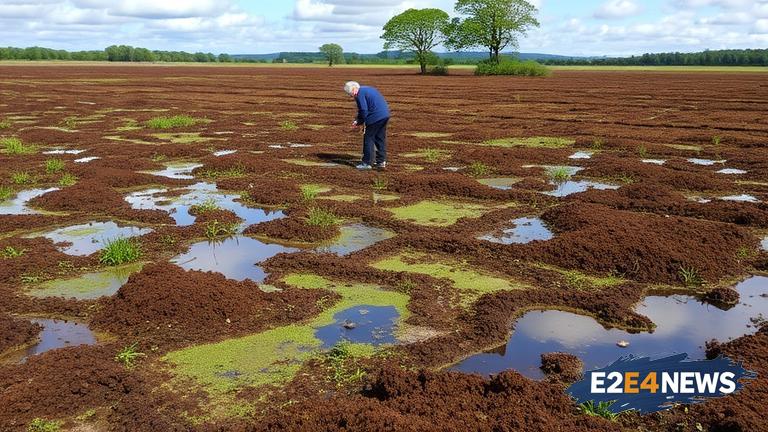The UK government’s decision to delay the peat ban has sparked a mix of reactions from the horticulture industry. While some welcome the delay, others argue that it is a missed opportunity to transition to more sustainable practices. Peat, a non-renewable resource, has been a staple in the industry for decades, but its use has been linked to environmental concerns, including carbon emissions and habitat destruction. In recent years, the UK government has been under pressure to phase out peat use, with a ban initially set to come into effect in 2024. However, the delay has been attributed to concerns over the availability of alternative materials and the potential impact on the industry. Experts argue that a real fix is already available, citing the effectiveness of sustainable alternatives such as compost and wood fiber. These materials have been shown to be just as effective as peat in terms of plant growth and health, while also being more environmentally friendly. Furthermore, many companies have already begun to transition to peat-free products, demonstrating that it is possible to make the switch without disrupting the industry. The delay has been criticized by some, who argue that it will only serve to prolong the use of peat and hinder the transition to more sustainable practices. On the other hand, others see the delay as an opportunity to develop and refine alternative materials, ensuring a smoother transition for the industry. The UK’s horticulture industry is not alone in its reliance on peat, with many countries around the world also struggling to reduce their use of the material. As the industry continues to evolve, it is likely that we will see a shift towards more sustainable practices, with a focus on reducing environmental impact while also ensuring the health and quality of plants. In the meantime, experts recommend that gardeners and growers explore alternative materials and consider the environmental implications of their choices. The use of peat has been a long-standing issue, with many calling for a ban on its use in horticulture. While the delay may be seen as a setback, it is clear that the industry is moving towards a more sustainable future, with many companies and individuals already making the switch to peat-free products. As the industry continues to transition, it is likely that we will see the development of new and innovative materials, designed to meet the needs of gardeners and growers while also minimizing environmental impact. The UK government’s decision to delay the peat ban may have been seen as a disappointment by some, but it is clear that the industry is already moving towards a more sustainable future, with many experts arguing that a real fix is already available.
